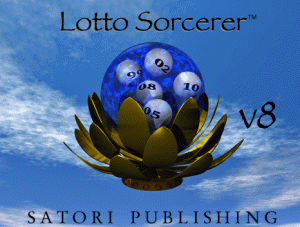Q&A: How do I determine which lottery I should spend my $1 on?
Question by bokonon1000: How do I determine which lottery I should spend my on?
I need to know the best way of determining the lottery game I should spend my $ 1 on. In Illinois, I can basically choose between the Illinois Lottery and the Mega Millions game for the large jackpots. The Mega Millions has a larger jackpot, but the probability of winning is smaller. The Illinois Lottery has a smaller jackpot but a better probability of winning. Because the jackpots of these two lotteries fluctuate, I want to know the best way of determining the better lottery “value”. I was thinking that I should multiply the probability of winning the jackpot times the jackpot (in dollars) for each lottery. The lottery with higher number should be the better value. Is this correct, or is there another way of determining the better choice?
Best answer:
Answer by igi
the one where you win







I would play the bigger one.After all it’s only a dollar with a chance at lot more back.
Your chances of winning either lottery is less than being struck by lightning….twice.
Go spend your buck on a soda, or give it to a homeless person, or use it to buy someone you love a little item to say that you love them.
right them all down on a piece of paper… close your eyes and pick one.
At the end of the day you will have more money in your pocket (on average) if you play neither lottery. The expected winnings on a single dollar is less than a dollar for any lottery.
Keep it and invest it and you’ll have more money!
From a mathematical standpoint, if you have a 1/1000 chance of winning $ 800 on a $ 1 bet, that’s an expected return of 80 cents per dollar.
If the mega jackpot is $ 80 million, with a 1 in 100 million chance of winning on a $ 1 bet, that is still an expected return of 80 cents per dollar.
But in either case you are expected to win less than you invest, so gambling is just that… a gamble regardless of the amount.
Theoretically, yes, that is correct. Thats what is called the ‘expected value’ – if you bet $ 1 millions of times, the average amount you would win is (probability of jackpot)*(size of jackpot) each game, assuming there aren’t smaller prizes etc.
However, that never really works in real life. If you had to choose between $ 1000000 guaranteed or $ 2000000 with a probability of 60%, I’m sure you would go for the first option, even though ‘theoretically’ you should go for the second. Theres a huge amount of study that has gone into that sort of thing, and whether people are risk-takers, etc etc.
In all, I would probably go for the one with higher probability, even if it was less money. You have a better chance of winning, and I’m sure you’d be just as happy winning any amount of money.
That is essentially correct, HOWEVER…
there are other factors.
You have in effect calculated the expected value of your ticket if they only rewarded the top prize. There are other prizes for fewer numbers hit as well, and these are often set values which do not change as the prize “pool” increases. These would have to be taken into account.
Also, there is the slight but very possible chance that someone else hits the big prize simultaneously, (especially when the pool becomes relatively large compared with the odds: the number of people buying tickets rises much greater than linearly) , in which case you split it. While this would be taken into account in both lotteries, the differential between the “value” of the two would be smaller.
Now if the odds of a lottery were, say 10,000,000 : 1, and the payout for the top prize were 20,000,000, then it might actually be worth spending $ 10,000,000 to purchase every ticket, guaranteeing a win! (Not only do you win the top prize, but you have hundreds of smaller prizes too. But again, this would depend heavily on the number of tickets in circulation). In fact, a few years ago an international consortium did just that and purchased ~96% of possible powerball ticket combinations when the payout exceeded 4 times the (inverse of the) probability. (They won by the way)
If you go for the one with the higher probability as another answerer has suggested, then by continuation of this hypothesis you should just forget about the lottery and flip coins against your neighbor for $ 1.
In any event, the lottery is usually just a tax on people who are bad at math.
eeneey meeneey mynee mo
I think that you are overthinking this way too much… buy a powerball!
From Nevada..and there are those of us who know all about “winning” !!!!
To answer your question (but see my comment at the end) go with the better chance of winning & the lower payout. The rule to “winning” is that you are NOT going to hit it big.. you are way, way further ahead, with alot of “small” wins than that clown who is playing to “hit it big” (won’t happen!!!!)
Don’t foreget, everytime you win “small” the guy who is playing to win “big” looses, while you have had a “small” win. These “small” wins add up pretty fast, while the other guy is going further into the hole.
Do the math…
My comment—completely forget the lottery’s. You really do have a better chance of being hit by lightening 2 or 3 times than you do of winning a states’ lottery.
take $ 1/day, put it in an interest bearing account at your credit union or stock broker each day & over time, you’ll be rich (or at least not broke) with the compounding of the interest.
good luck, have fun & get ready to kiss the $ 1 good by in the lottery